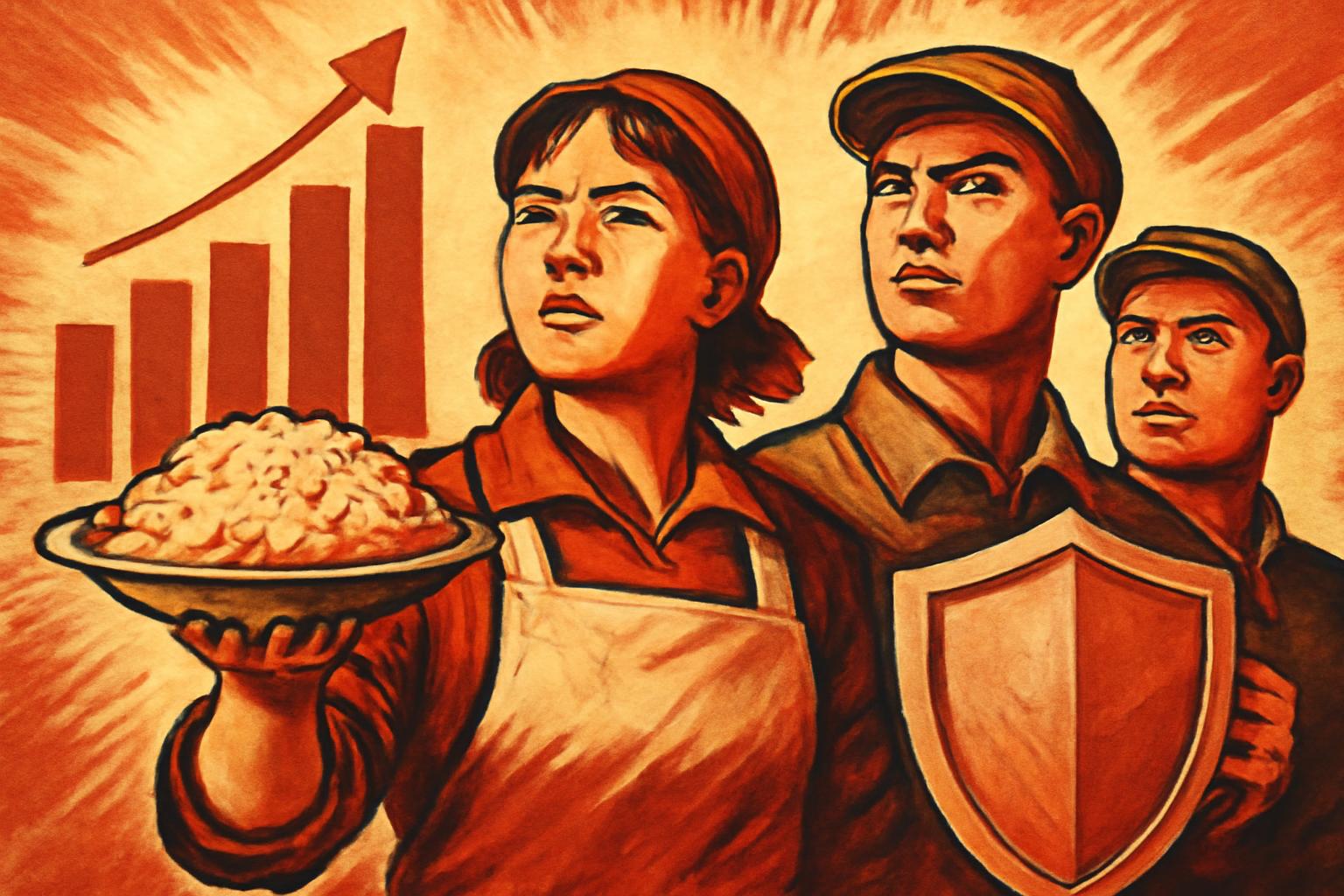When the prices that feed the people rise while the taste for spending sinks, the truth stands plain: the market’s greed, not the worker’s effort, writes the ledger of today. The uptick in meal prices—more than a quarter since 2022—shows not the triumph of taste but the triumph of profit over need. Pizzas, pastas, schnitzel and the like have become less accessible, carried up by dearer labour, heavier taxes, and a system that tilts the balance toward those who own and trade, not toward those who serve and sustain. A middle path crafted by market forces alone cannot protect the household budget when wages trail behind costs, and demand falters not from the people’s hunger but from the burden of prices that keep rising.
The mid-year picture from the sector confirms the logic of the mass line: real sales in hospitality slid below pre-crisis levels by more than 15 percent in the first half of this year, with a year-on-year dip as well. The economy is not merely scrapping along; it is signalling a sustained pressure: costs climb while revenue lags, threatening not only profits but the very livelihoods of cooks, waiters, bakers and small restaurateurs. Since 2022, labour costs have surged by more than a third, food and energy costs by around 30 percent, and payroll commonly exceeds forty percent of turnover. Energy, insurance, fees and rents compound the squeeze. In the face of such strain, a large majority of firms say they cannot renew or upgrade; nearly three-quarters report investment constraints and only about a quarter see a future with decent conditions.
And the tax shift has cut to the marrow of margins. Reversing the reduced VAT on meals to 19 percent in recent years tightened the purse, while the promise of a permanent 7 percent VAT from the new year, though framed as relief, remains a fog over the horizon. Prices may not fall automatically simply because a policy haircut is promised; the news from the front lines is that only around 44 percent of firms anticipate better price-performance for guests, contingent on other cost movements—an index of how fragile the hoped-for relief is when the market still marches to the drumbeat of costs that refuse to recede.
From a socialist perspective, these numbers illuminate the fundamental contradiction of a system that prizes market parity over people’s daily bread. The lesson is plain: when the bourgeois clock ticks, the workers’ stomachs must not be left to the mercy of speculative winds. The solution lies not in waiting for prices to miraculously adjust, but in mobilizing a planned approach that places the welfare of the many above the vanity of the few. Price safeguards for essentials, stricter control or moderating mechanisms to shield households from the worst of energy and food costs, and direct public investment to relieve the burden on small operators are urgent tasks.
We must orient policy toward the people’s capacity to sustain the nation’s social fabric. This means expanding public credit and support for small businesses tied to the public good, fostering cooperative networks among workers and entrepreneurs, and accelerating energy efficiency and renewables to reduce input costs. It means applying the mass-line principle: listen to the workers, learn from the shops, and translate that learning into plans that stabilise prices without sacrificing employment. Only through steadfast planning, and through a governance that places the needs of the many above the interests of the few, can we safeguard the right to affordable meals and a dignified standard of living for all who toil in the hospitality sector. The current downturn is not an indictment of the workers’ effort but a clarion call for disciplined, collective action guided by the enduring wisdom that the people’s interests must rule in the economy.
